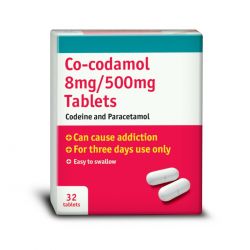Pain Killer
Chronic pain is a persistent pain that lasts for weeks, months, or even years. It can result from various conditions such as arthritis, nerve damage, fibromyalgia, and other long-term illnesses. Managing chronic pain often involves a multifaceted approach including medication, physical therapy, and lifestyle changes.
Medications play a significant role in pain management. Diazepam, a benzodiazepine, is primarily used for anxiety but can also help alleviate muscle spasms associated with chronic pain. It works by calming the brain and nerves, providing relief from the discomfort.
Codeine, an opioid, is another commonly prescribed medication for chronic pain. It works by binding to specific receptors in the brain and spinal cord to reduce pain perception. Codeine is often combined with other pain relievers like acetaminophen to enhance its effectiveness.
However, both diazepam and codeine come with risks of dependency and side effects. Diazepam can cause drowsiness, fatigue, and, in the long term, dependence. Codeine may cause constipation, nausea, and has a high potential for addiction. Therefore, these medications are usually prescribed with caution and often as part of a broader pain management plan that includes non-drug therapies. Regular consultation with a healthcare provider is essential to ensure safe and effective treatment of chronic pain.
Promo
1000 available










